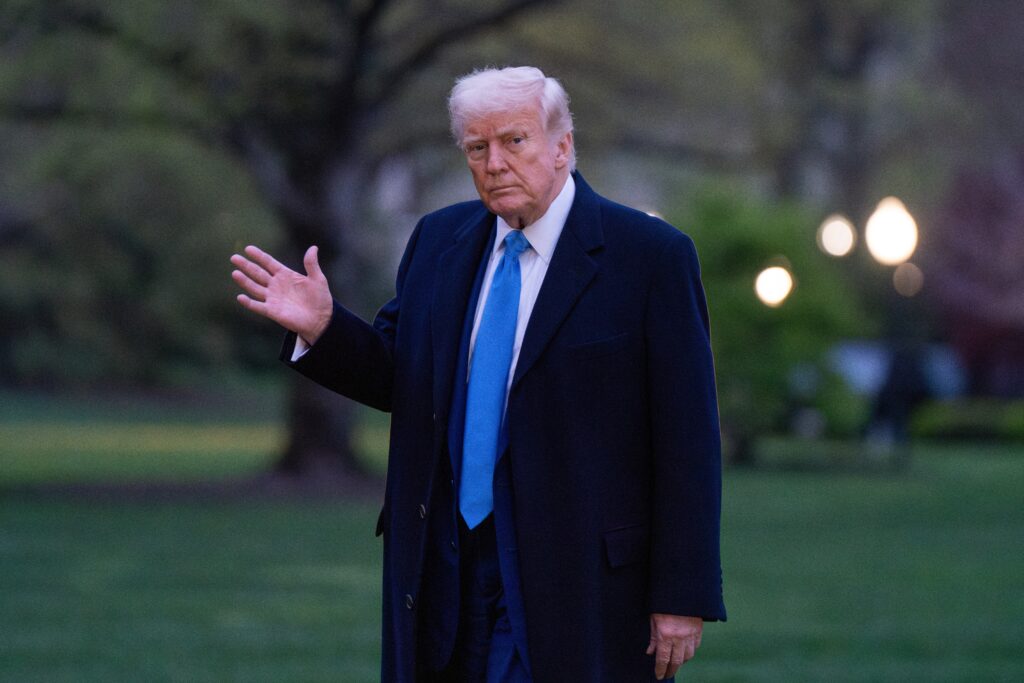The Kremlin has dismissed speculation about an early summit between Vladimir Putin and Volodymyr Zelensky. At the same time, Donald Trump renewed his call for the two leaders to meet and explore ways to end the war in Ukraine.
The push for direct talks followed Trump’s meeting with Putin in Alaska last week. On Monday, he hosted Zelensky and seven European leaders at the White House.
Trump admitted the conflict was hard to resolve and warned that Putin might not want peace. “We’re going to find out about President Putin in the next couple of weeks,” he said on Tuesday. “It’s possible that he doesn’t want to make a deal.”
Trump offers limited role in future meeting
Trump said Putin would face “a rough situation” if he avoided negotiations, though he gave no specifics. Later, he suggested Zelensky and Putin might be better off meeting without him. His comments came in a late-night interview with conservative host Mark Levin.
He added he would attend a summit “if necessary,” but preferred to wait and see how matters developed.
Putin told Trump on Monday he was “open” to direct talks with Ukraine. The following day, Foreign Minister Sergei Lavrov quickly softened that position. He said any summit must begin with expert-level discussions and advance gradually.
Russia’s deputy UN envoy Dmitry Polyanskiy also said no one had ruled out talks. However, he stressed a summit should not happen “for the sake of a meeting.”
Nato prepares as Russia floats Moscow option
Nato military chiefs are scheduled to meet virtually on Wednesday. Britain’s top commander, Admiral Tony Radakin, is in Washington for discussions about deploying a reassurance force in Ukraine.
Reports suggested Putin invited Zelensky to Moscow for negotiations. Ukraine was unlikely to accept such an idea. Observers called the proposal unrealistic and mainly intended to look constructive.
Trump now seems more aware of the war’s complexity and the gulf between Moscow and Kyiv.
His earlier claim that he could quickly secure a ceasefire has faded. He now argues instead for a lasting peace agreement with strong security guarantees for Ukraine.
Zelensky and European leaders pressed him to support such guarantees, calling them vital to Ukraine’s sovereignty.
US offers air support but no troops
On Tuesday, Trump said the US could assist Europe “by air” if allies committed troops in Ukraine. He ruled out deploying American soldiers. He did not clarify whether this meant intelligence, drones, or fighter jets.
Meanwhile, France and the UK are leading a “coalition of the willing.” The group is preparing plans for a reassurance force to deploy in Ukraine once fighting ends.
After a virtual meeting on Tuesday, a Downing Street spokesperson said the coalition would soon meet US counterparts. Their aim is to secure lasting guarantees for Kyiv.
Past hostilities weigh on peace prospects
After meeting Putin and Zelensky, Trump said direct talks might bring peace closer. Yet he admitted “tremendous bad blood” separated the two leaders.
The last time they met was in 2019. Since then, Russia’s invasion has caused tens of thousands of deaths, massive destruction, and constant airstrikes on civilian areas.
Putin rejects Zelensky’s legitimacy and blames him for Ukraine’s Western ties. He has long claimed—without evidence—that Kyiv is ruled by a “neo-Nazi regime.” He insists any ceasefire must include a leadership change in Ukraine.
Russia also sees little reason to negotiate while its forces hold battlefield advantages.
Still, Zelensky and European leaders back the idea of a summit. Zelensky said on Monday he was open to “any format” of talks. Europeans have already proposed potential venues.
They hope supporting direct dialogue will pressure Trump to harden his stance if Putin refuses compromise.
European allies remain doubtful
European leaders remain more sceptical than Trump about Moscow’s intentions. On Tuesday, French President Emmanuel Macron called Putin “a predator, and an ogre at our doorstep.” He expressed deep doubt that Russia wanted peace.
Finnish President Alexander Stubb voiced similar concerns. He said Putin was “rarely to be trusted” and doubted a summit with Zelensky would ever happen.
Further high-level talks are expected in the coming days. European leaders still question how far Trump will go in backing their security.


